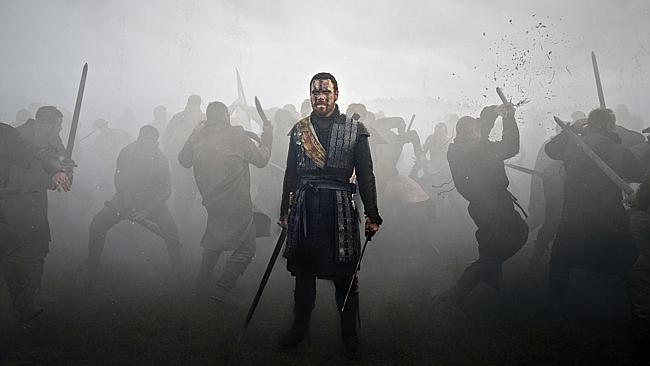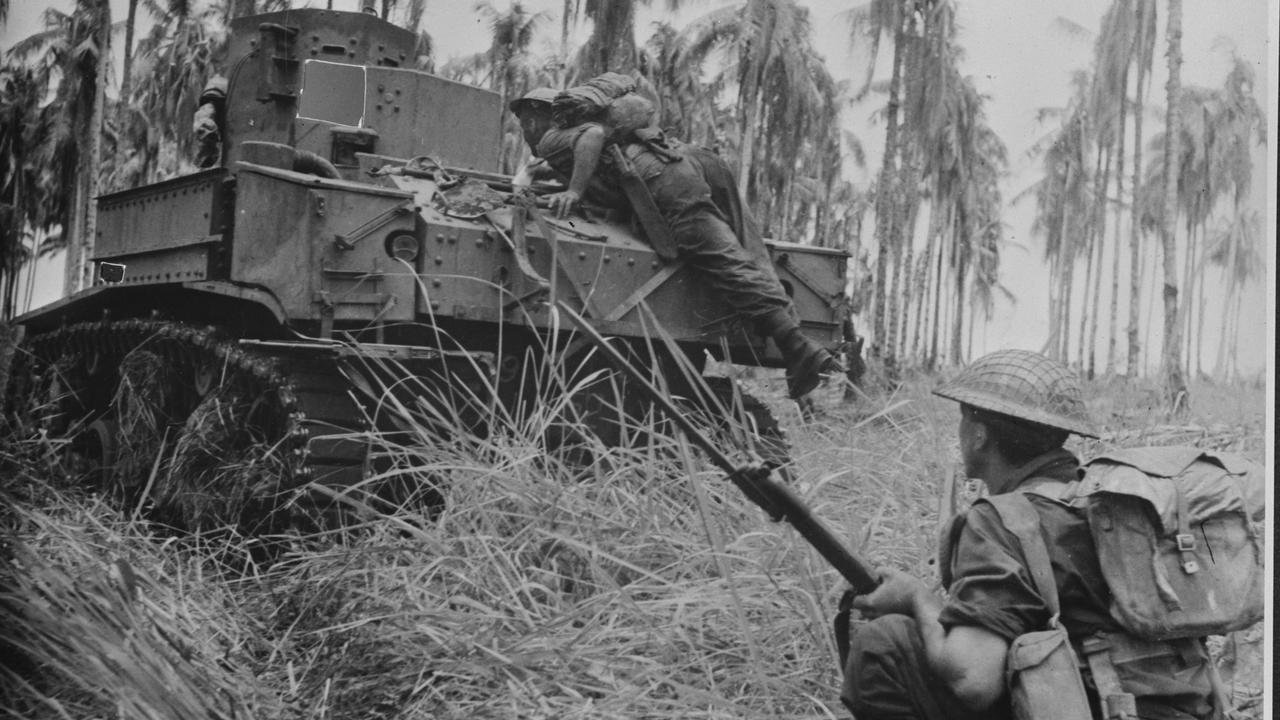Macbeth director Justin Kurzel: from Snowtown to Scotland
Snowtown director Justin Kurzel found Shakespeare’s Scottish play was the perfect choice for his follow-up film.

It’s not as though Macbeth hasn’t been attacked with gusto on screen before.
Orson Welles, Sean Connery, Ian McKellen (in a filmed stage version) and Patrick Stewart are among the stars to have enveloped themselves in the sound and fury that surrounds Shakespeare’s Scottish kingslayer turned king, while Welles, Akira Kurosawa and Roman Polanski are among the directors to interpret the play for the screen.
Even Australia had a dip with a 2006 ganglands Melbourne incarnation directed by Geoffrey Wright of Romper Stomper fame, featuring a young Sam Worthington in the lead role.
So of all the plays in all the world, why did the Australian director of the acclaimed Snowtown, Justin Kurzel, choose Macbeth as the source material for his second full feature? That’s taking on some sort of burden, surely.
“Yeah, well you’ve got to get over that kind of quickly,” the South Australian filmmaker says.
“To be honest I felt more of a burden doing Snowtown — there was the sense of responsibility for a true event and real people’s lives that were depicted, and the uncertainty of how that film would be received.”
Kurzel’s chilling 2011 dramatisation of the bodies-in-the-barrels murders on the outskirts of Adelaide engrossed any viewers bold enough to watch it. While Macbeth is also a bloody story, it’s a very different project, Kurzel says, if only due to its omnipresence.
He understands that hundreds of productions of Shakespeare’s towering work have been produced for the stage and the screen. So the pressure is different “because you have a piece that’s so familiar and you’re doing it for an audience a lot of whom have probably seen it before, and you’re trying to give a fresh interpretation to that.’’
In one regard, Macbeth is similar to Snowtown, which as The Snowtown Murders won a special jury prize in the Critics Week section of the Cannes film festival (a decade after Kurzel’s short film Blue Tongue screened at Cannes; Macbeth was chosen for the Cannes official competition in May). But that’s where the similarities end as Kurzel moves from the barren, impoverished suburbs outside Adelaide to a sweeping Scottish plain that becomes the battlefield rather than the original text’s heath.
And after directing a cast of no-name, first-time actors in Snowtown, Kurzel has a cinematic dream team of Michael Fassbender in the title role and Oscar-winning French actress Marion Cotillard as Lady Macbeth. As such, the whole enterprise was a shock to the system, the 41-year-old admits.
“It was so out of my comfort zone — even though I came from the theatre and had designed Shakespeare plays and was kind of familiar with working with the verse, it was still a really different choice from Snowtown . And then to be an Australian coming over here to make a film in the UK by William Shakespeare?” Kurzel is still a bit surprised at securing two of the world’s hottest actors for the film.
The result is a stunning, furious, un-stagy version that has already been embraced by the audience most likely to tear strips off it: British film critics. In a four-star review BBC critic Nicholas Barber describes Kurzel’s adaptation as “audacious” and “awe-inspiring”.
Yet the film is almost an accidental Macbeth. Kurzel had laboured for 18 months on another project that fell through very late in the piece. He concedes he was “kind of depressed” and lurching through “that second film syndrome” and agonising about what to do after his singular feature debut.
Then Kurzel met Fassbender, star of the X-Men series and Oscar nominee for Steve McQueen’s 12 Years a Slave, at a London pub — just to trade mutual admiration. But director and actor soon realised they “felt like two like minds that hopefully one day could work together”.
As it happened, the English-Australian producing team behind The King’s Speech, Iain Canning and Emile Sherman, soon delivered Kurzel a Macbeth screenplay by Jacob Koskoff, Michael Lesslie and Todd Louiso, noting Fassbender was “really interested in it”.
The actor’s attachment made “complete sense” to Kurzel, as did the screenplay. “It was really interesting, cinematic, and it read like a western. I’d been looking around at westerns and I was quite interested in landscape.
“It had a lot of space in it, was set in Scotland in the times — the last thing I wanted to do was a Shakespeare adaptation as a modern-day thing, or having a high concept on it or anything like that.’’
He adds that “there was a clarity to it that made sense about what it must have really been like in 1057, having the real Macbeth a warrior living in that landscape, surrounded by that brutality’’.
And, like Snowtown in a sense, this Macbeth is an essay on violence, a look at a certain kind of evil and madness and guilt. Kurzel’s film is notable for being visually arresting yet challenging, because his characters are worn and beaten. Early on he addresses one of the key questions of the play — Macbeth and his wife’s lack of children — by showing them at their child’s funeral, fragile, grief stricken, tired and desperate. Macbeth and Lady Macbeth see the witches’ prophecy of killing the king as a way of rebuilding their lives together, which makes this more than a portrait of pure ambition.
For Kurzel, the narrative intrigue, similarities to Snowtown and timing made for a perfect project, one that happened rather quickly, the only speed bumps being the first Lady Macbeth, Natalie Portman, leaving the role, and also a brief flirtation with filming in Australia being killed by union opposition to the foreign leads.
“It was always going to be made in Scotland, in the place it was set,” Kurzel says. “It would have been a real challenge to shoot it in Australia, especially the light and the conditions.
“The film is so particular to that landscape and such a riff off that landscape that I can’t imagine doing it anywhere else now. Scotland was a huge part of the grain and grit of the film and you kind of feel Macbeth’s madness definitely caught up in that landscape.”
The Scottish location was not without its challenges, but they were ones that infuse the film with reality. “It is kind of ridiculous,’’ Kurzel recalls, “standing on a mountain, being told you’ve got to get off in five minutes because a storm’s coming in from Norway that could kill everyone — and you’re trying to do the most intimate verse that’s ever been written. There is a kind of madness to it but I think that’s what I was really interested in: how the verse didn’t essentially lead or motor and fuel the whole film.”
Kurzel wanted to have the words “dance with an environment and a context and a place” as they do in westerns.
“The idea there’s a space around words and when people do speak it’s soft and intimate and almost like a confession, and then you suddenly cut out to a landscape that is so enormous and so intimidating and sitting amongst it is that small little figure you’ve just had a conversation with,” he explains.
That contrast is a very Australian thing too, he observes, in that we have a connection with the vastness of the intimidating landscape that surrounds us. The Scottish landscape “that just goes on and on and on and completely dwarfs you was just so right for this piece’’, he adds.
“And I guess it comes back to that question, where you can be so preoccupied by the past Macbeths and the famous portrayals of Macbeth, and we never really went there because we were so inspired by the places and the landscape in which we were shooting,” Kurzel says.
He — and a number of Australian key creative team members including cinematographer Adam Arkapaw, production designer Fiona Crombie and composer Jed Kurzel (the director’s brother) — aimed to create an authentic world first “and then the story and the verse danced amongst that”.
“And there was this sense of wanting to prove myself a bit, too, to sort of come over here and do such a treasured piece and do it in Scotland. I felt a real responsibility to make sure I was doing everything possible to make it work.”
Macbeth opens on October 1 and will be reviewed next week by David Stratton.



To join the conversation, please log in. Don't have an account? Register
Join the conversation, you are commenting as Logout